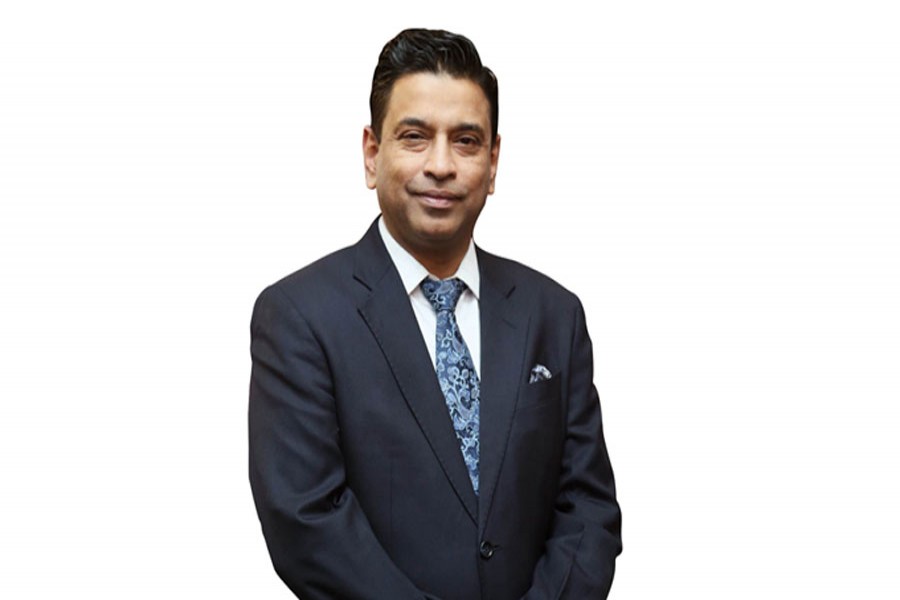The Dutch government is planning to invest Euro 7.0 million to help 90,000 small farming households in rural Bangladesh grow as agro entrepreneurs under a project, said a top regional boss of Solidaridad, the implementing agency of the project.
"This is just the beginning, we are trying to figure out the right kind of business process, so that we can massively scale up these initiative in future," said Dr. Shatadru Chattopadhayay, Managing Director, Solidaridad Asia.
The project plans to implement interventions through introduction of water efficient, climate-smart, and regenerative agriculture production systems; watershed protection; and watershed management and governance.
Talking to The Financial Express, he said agriculture in Bangladesh needs modernisation urgently.
"It is urgent because of Bangladesh agriculture's extreme vulnerability to climate change as the seventh most vulnerable country in the world."

Climate change is reducing crop yields and nutritional quality of major cereals, and lowering livestock productivity.
"Substantial investments in adaptation will be required to maintain current yields and to raise production and food quality to meet demand."
Dr. Shatadru noted that agriculture is the largest employment sector in Bangladesh, making up 14.2 per cent of Bangladesh's GDP in 2017 and employing about 42.7 per cent of the workforce.
The performance of this sector has an overwhelming impact on major macro-economic objectives, like employment generation, poverty alleviation, human resources development, food security, and other economic and social forces.
However, large industries would not be a way forward among these challenges; whereas small and medium enterprises, having great potential with low investment, would make great impact.
He said Solidaridad aims to improve and diversify coastal agriculture of Bangladesh through innovative ecosystem-based water and land use planning for greater climate resiliency and economic return among the coastal communities.
Talking about the country's economy, Dr. Shatadru said amidst COVID-19, when most of the developing countries, including India, were recording a negative growth, Bangladesh experienced a positive growth rate of 3.4 per cent.
However, the country is experiencing symptoms that could stall such an impressive record, like rising divergences in the government's fiscal balance; precarious balance of payments situation; rapidly declining foreign exchange reserves; demand-supply gaps in energy markets; and inflationary tendencies, he noted.
"The shocks of the pandemic and the Russia-Ukraine war could further create financial vulnerabilities on the country, as it was forced to seek a precautionary loan of US$ 4.5 billion from the International Monetary Fund (IMF)."
As RMG is the country's key export earning sector, Bangladesh needs to urgently modernise the sector through diversification, greater inflow of FDI and technology transfers, production of high-value products, progress on design and branding, and development of upstream and downstream industries to help offset job losses - resulting from automation.
Dr. Shatadru also said Bangladesh should focus on improving export markets of leather and leather goods.
"Declining demand for crust and processed leather in the export market, lack of proper waste management, safety and compliance issues, lack of new investment, and lack of product variety are the main reasons behind the steady decline in export earnings."
As the economic power of Bangladesh is rapidly increasing, its citizens would consume more food, vegetable oil and milk, and require more feed for meat, he opined.
In order to meet these rising demands, the farmers, especially small-hold farms, would increase yields by using chemicals, fertilisers, fresh water and energy in a massive scale.
"It would have profound ecological impacts, as we have witnessed in the Green Revolution states of Haryana and Punjab of India."
So, there is a need of paradigm shift towards regenerative agriculture. Solidaridad seeks to work with Bangladeshi stakeholders to usher in a regenerative agriculture revolution, he mentioned.
"Regenerative agriculture" is a way of holistic farming to build and improve soil fertility, whilst sequestering and storing atmospheric CO2, increasing on-farm diversity, and improving water and energy management.
To restore degraded lands due to excessive and unsustainable cultivation, regenerative agriculture practices, such as crop diversification, tree planting, reduced tillage, mulching, and water conservation techniques spur benefits for both agribusinesses and society.
Regenerative practices are comparatively cost-effective, relying mainly on knowledge, time and labour. Solidaridad, in its programmes in India, Indonesia, Malaysia and Bangladesh - covering palm oil, sugarcane, cotton and mangoes, has seen reduced input costs while increased yield levels, he added.


